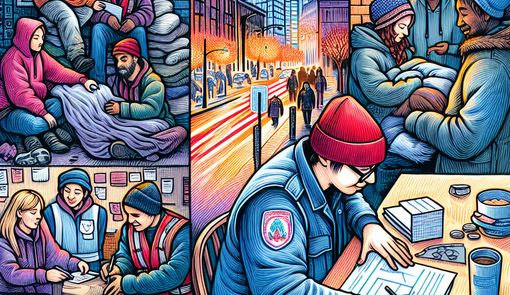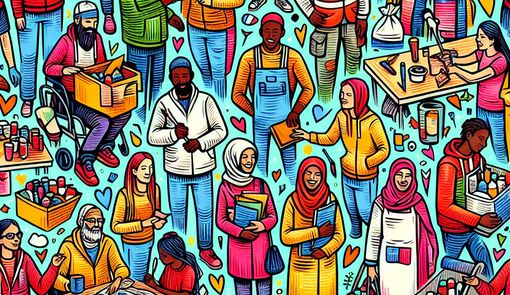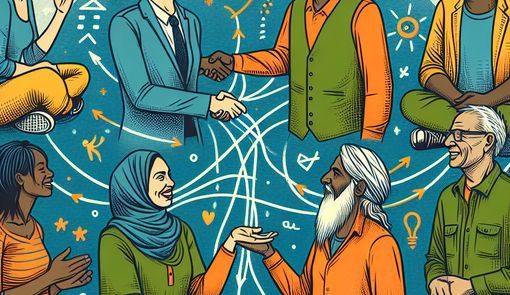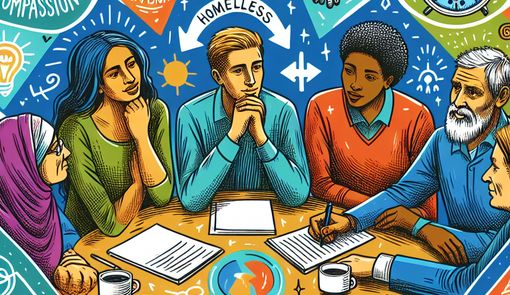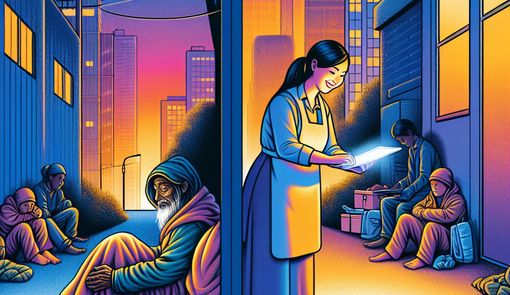Becoming a Homeless Outreach Coordinator: A Complete Guide

Becoming a Homeless Outreach Coordinator is a fulfilling career path that allows individuals to make a significant impact on some of society's most vulnerable members. This role involves coordinating services and support for the homeless population, helping to address immediate needs while also working towards long-term solutions to end homelessness. If you're passionate about social justice, community service, and making a tangible difference in people's lives, this guide will provide you with the key qualifications, roles, and potential impact associated with this important position.
Qualifications
To become a Homeless Outreach Coordinator, you'll typically need a combination of education, experience, and personal attributes. A bachelor's degree in social work, psychology, sociology, or a related field is commonly required. Relevant work experience in social services, counseling, or case management can also be beneficial. Essential personal attributes include strong communication skills, empathy, patience, and problem-solving abilities. Certifications in mental health first aid, crisis intervention, or addiction counseling can enhance a candidate's qualifications.
Roles and Responsibilities
The primary role of a Homeless Outreach Coordinator is to connect the homeless with essential services, such as shelter, healthcare, counseling, and job training. Responsibilities include assessing individuals' needs, developing outreach programs, coordinating with service providers, case management, and advocating for resources and policy changes to support the homeless community.
Training and Education
Additional training in harm reduction strategies, cultural competency, and understanding the causes of homelessness, such as poverty, unemployment, and mental health issues, is crucial. Continuous education and professional development are important, as the field often requires staying updated with best practices and new resources.
The Impact
The impact a Homeless Outreach Coordinator can have is profound. This includes improving the quality of life for individuals, reducing the number of people living on the streets, and contributing to the broader social goal of ending homelessness. The fulfillment gained from this career comes not only from helping individuals but also from contributing to systemic change.
Challenges
Like any role that involves human services, the position of Homeless Outreach Coordinator comes with its challenges. Coordinators often face high levels of stress due to the complex needs of the population they serve, as well as potential burnout from emotional involvement with clients. Developing strategies for self-care and setting professional boundaries is vital.
Salary and Career Outlook
Salaries for Homeless Outreach Coordinators vary widely by region and the type of employing organization. According to the U.S. Bureau of Labor Statistics, as of 2021, the median annual wage for social workers specialized in mental health and substance abuse was approximately $47,000. Job prospects in this field are expected to grow due to the ongoing need for social services and support for vulnerable populations.
Conclusion
A career as a Homeless Outreach Coordinator offers the opportunity to make a lasting impact. It requires a unique blend of skills, dedication, and resilience. Those who choose this path will find a challenging yet rewarding journey, as they work to bring hope and stability to those who need it most. If you're ready to embark on this transformative career, begin by focusing on your education, honing your interpersonal skills, and seeking out opportunities to work with marginalized communities. The world needs more champions for those without a voice, and this could be your chance to become one.
Frequently Asked Questions
1. What are the key qualifications to become a Homeless Outreach Coordinator?
To become a Homeless Outreach Coordinator, individuals typically need a bachelor's degree in social work, psychology, sociology, or a related field. Relevant work experience in social services, counseling, or case management is also beneficial. Essential personal attributes include strong communication skills, empathy, patience, and problem-solving abilities. Certifications in mental health first aid, crisis intervention, or addiction counseling can enhance qualifications.
2. What are the primary roles and responsibilities of a Homeless Outreach Coordinator?
The primary role of a Homeless Outreach Coordinator is to connect the homeless with essential services such as shelter, healthcare, counseling, and job training. Responsibilities include assessing individuals' needs, developing outreach programs, coordinating with service providers, case management, and advocating for resources and policy changes to support the homeless community.
3. What additional training is important for a Homeless Outreach Coordinator?
Additional training in harm reduction strategies, cultural competency, and understanding the causes of homelessness, such as poverty, unemployment, and mental health issues, is crucial. Continuous education and professional development are important for staying updated with best practices and new resources.
4. What impact can a Homeless Outreach Coordinator have?
A Homeless Outreach Coordinator can have a profound impact by improving the quality of life for individuals, reducing the number of people living on the streets, and contributing to the broader social goal of ending homelessness. The fulfillment gained from this career comes not only from helping individuals but also from contributing to systemic change.
5. What are the challenges faced by Homeless Outreach Coordinators?
Homeless Outreach Coordinators face challenges such as high levels of stress due to the complex needs of the homeless population, as well as potential burnout from emotional involvement with clients. Developing strategies for self-care and setting professional boundaries is vital in this role.
6. What is the salary range and career outlook for Homeless Outreach Coordinators?
Salaries for Homeless Outreach Coordinators vary by region and employing organization. According to the U.S. Bureau of Labor Statistics, the median annual wage for social workers specialized in mental health and substance abuse was approximately $47,000 in 2021. Job prospects in this field are expected to grow due to the ongoing need for social services and support for vulnerable populations.
Further Resources
1. National Alliance to End Homelessness
- National Alliance to End Homelessness offers valuable resources, research, and advocacy tools to address homelessness at the national level.
2. Homelessness Resource Center
- Explore the Homelessness Resource Center by SAMHSA for in-depth information on evidence-based practices and resources for homeless assistance programs.
3. Crisis Text Line
- For immediate support and crisis intervention, individuals dealing with homelessness can reach out to the Crisis Text Line for free, confidential assistance.
4. National Coalition for the Homeless
- Stay informed on policy issues, advocacy efforts, and solutions to homelessness by visiting the National Coalition for the Homeless.
5. Training and Workshops
- Look into local training sessions and workshops offered by organizations such as homeless shelters, community centers, and social service agencies for hands-on learning and skill development in homeless outreach work.
6. Volunteer Opportunities
- Engage in volunteer opportunities with local homeless shelters, food banks, or community outreach programs to gain firsthand experience and insight into the daily challenges faced by the homeless population.
7. Professional Associations
- Join professional associations like the National Association of Social Workers (NASW) or the Association for Community Organization and Social Administration (ACOSA) to connect with peers, access resources, and stay informed about industry trends and best practices.

